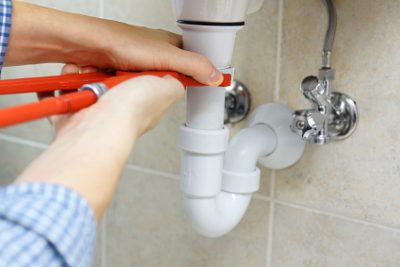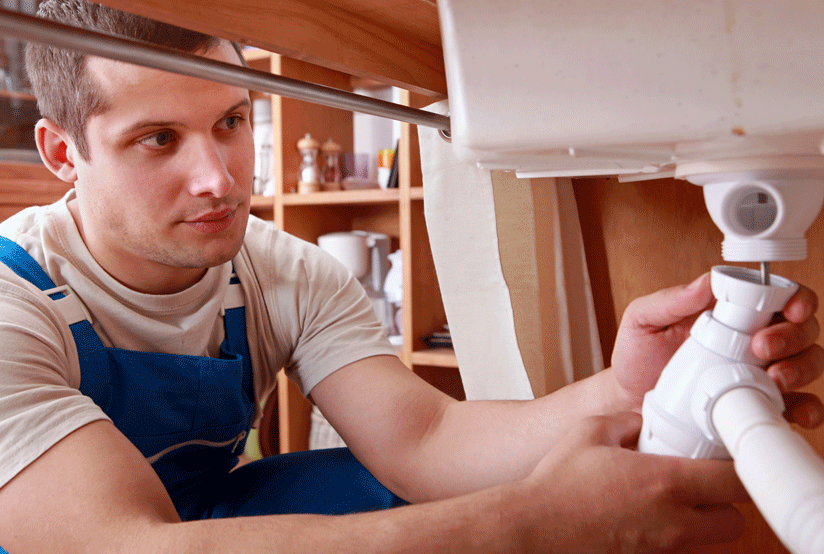Simple Ways To Fix A Slow-Draining Sink
Simple Ways To Fix A Slow-Draining Sink
Blog Article
On this page further down you will discover a bunch of high-quality guidance relating to Three Common Ways to Fix a Slow Drain.

Intro
We have actually all been there: You're cleaning your teeth or washing your hands, and you observe the water pooling in the sink. Instead of quickly swirling away, it sticks around, turning your once-refreshing morning routine right into a miniature swamp scene. A slow-draining sink isn't just irritating; it's commonly an indication of larger pipes concerns prowling beneath the surface. The bright side is that most slow-draining sinks can be fixed with a little expertise, a couple of basic tools, and some persistence. All set to tackle this project head-on? Let's roll up our sleeves and dive right in.
Recognizing the Reasons For a Slow-Draining Sink
Prior to you start poking around in your pipes, it assists to understand what may be causing the downturn. Understanding the source makes it less complicated to pick the appropriate repair.
Common Wrongdoers Behind Slow Drainage
So, what's blocking things up? Generally, it's a combination of day-to-day particles-- believe hair, soap residue, tooth paste residue, and remaining food bits. Gradually, these little bits collect and cling to the pipe wall surfaces, gradually tightening the flow and making it harder for water to pass through. In many cases, natural resource from difficult water can additionally add to the substance, developing the excellent storm for stubborn blockages.
When is it Time to Act?
If you discover the water draining slower than common, it's an excellent idea to interfere earlier as opposed to later on. Waiting as well long can result in complete blockages, unpleasant smells, or perhaps pipe damage. If the water takes greater than a couple of seconds to remove after switching off the faucet, consider it a warning and prepare to place on your do it yourself hat.
Devices and Products You'll Need
The right tools make all the distinction. The good news is, you will not need a totally stocked plumbing technician's van to finish the job.
Vital Tools for DIY Repairs
A plunger is your best beginning point. A small, sink-sized plunger develops suction that can dislodge minor obstructions. For more persistent clogs, a drainpipe snake (occasionally called a plumbing's auger) functions wonders. A set of handwear covers, a flashlight, and perhaps a pair of protective safety glasses are also helpful.
Suggested Cleaning Solutions
Moderate recipe soap and hot water can assist break down oily accumulation. A mixture of baking soda and vinegar is a tried and true natural remedy, and enzymatic cleaners provide an even more eco-friendly approach. Maintain chemical drainpipe cleaners as a last option, as they can be rough on your pipes.
Safety First: Precautions and Prep work
Before you launch into unclogging setting, consider security. You're handling possibly unclean water and debris, so slip on a set of handwear covers. If you're using chemical cleaners, make certain the space is well-ventilated and follow the directions on the label.
Protective Equipment and Office Configuration
Lay down some old towels or rags around the sink location to catch dashes. Eliminate any kind of items that might enter your way, like soap dispensers or toothbrush holders. See to it you have good lighting-- get a flashlight if required.
Step-by-Step Guide to Repairing a Slow-Draining Sink
Currently, let's get involved in the nitty-gritty. This step-by-step procedure will certainly lead you via simple techniques to recover your sink's drainage.
Action 1: Eliminate and Tidy the Stopper
Usually, the stopper (that tiny plug you lower to block water) is the very first culprit. Remove it very carefully and wipe any hair or gunk trapped around its base. Rinse it extensively prior to placing it back in position.
Action 2: Make Use Of a Plunger to Displace Particles
Got that plunger prepared? Position it over the drain and provide it a few company pumps. The concept is to develop suction that can loosen up any type of clog. If you see littles debris floating up, you get on the best track.
Action 3: Try a Drain Serpent or Cord Wall Mount
If the bettor doesn't do the trick, it's time to highlight the drain serpent. Delicately feed it into the drainpipe and twist as you go. You might really feel some resistance-- that's most likely the obstruction. Maintain twisting and drawing up until you remove the blockage. If you don't have a drainpipe snake, an aligned cord wall mount can work in a pinch.
Tip 4: Apply a DIY Drainpipe Cleaner
An all-natural cleaner made from baking soft drink and vinegar can break down residual gunk. Pour half a cup of cooking soda right into the drain, complied with by half a cup of vinegar. Let it fizz for around 15 minutes, after that flush with hot water. This chain reaction usually does marvels for minor clogs.
Tip 5: Reconstruct and Test the Sink
Placed everything back together and run the faucet. Does the water now swirl away at a reputable speed? If yes, give yourself a pat on the back. If not, don't misery-- there are still a couple of more tricks up your sleeve.
Alternative Techniques for Stubborn Clogs
Not all clogs are created equivalent. If your sink still rejects to coordinate, think about these alternate services.
Baking Soda and Vinegar Approach
We already touched on this, but it deserves keeping in mind again. This mild, eco-friendly approach is much safer than chemical cleaners and typically rather effective.
Chemical Drain Cleaners
Enzyme-based cleaners use all-natural bacteria to absorb raw material. They're a superb option if you're wanting to stay clear of harsh chemicals. Just bear in mind, they might take a bit longer to work their magic.
Chemical Drainpipe Cleaners: Advantages And Disadvantages
Chemical cleansers can blow up with tough clogs quick, yet they're not without downsides. They can create warmth and fumes, damages pipes if used excessively, and position ecological dangers. Use them moderately, and constantly follow the directions meticulously.
Preventive Measures to Keep Your Sink Flowing
Avoidance is the most effective cure. By taking on a few basic practices, you can maintain your sink from decreasing in the first place.
Regular Cleaning Practices
Clean down the sink basin and fixture area routinely. Get rid of hair or food bits before they have an opportunity to wash down the drainpipe.
Avoiding Harmful Compounds Down the Drain
Hesitate prior to dumping coffee grounds, grease, or coarse veggie scraps down the sink. These offenders cling to pipe walls, creating obstructions in time.
Routine Upkeep Checks
Arrange a quick month-to-month inspection. Run warm water via the sink for a few minutes, paying attention to the flow. If it seems sluggish, act quick before it becomes a full-blown clog.
When to Call an Expert Plumbing Professional
Occasionally, despite exactly how tough you attempt, that block just will not budge. That's when it's time to generate the pros.
Signs That Indicate a More Major Problem
If your sink drains slowly in spite of several efforts, or if you notice water supporting in other components (like your shower or toilet), you might have a more major pipes issue hiding much deeper in the system.
Balancing Do It Yourself Initiatives with Expert Assistance
While do it yourself can conserve you money and provide a sense of accomplishment, there's no embarassment in calling an expert. An expert plumber can analyze your entire plumbing setup, ensuring there's no underlying damages or lasting problem that can cost you a lot more down the road.
Comparing Costs and Long-Term Solutions
Before deciding, think about the big picture. An inexpensive, quick fix might solve the trouble briefly, but investing in an extra long-term service could conserve you cash and stress and anxiety over time.
Weighing the Expenditures of DIY vs. Professional Fixes
DIY fixes typically set you back little greater than the cost of a plunger or a bottle of cooking soft drink. Specialist solutions, on the other hand, featured a price yet may protect against repeated issues and pricey repair work later.
Investing in Quality Fixtures and Upgrades
If your sink's design contributes to frequent clogs, it may be worth updating to higher-quality components or altering the plumbing layout. Consider this an investment in your home's capability and convenience.
Final thought
A slow-draining sink can seem like a small irritability, but it's often an indication that your plumbing requires a little tender loving care. By recognizing the origin, utilizing the right devices and methods, and dedicating to easy preventive measures, you can keep your sink streaming easily. And when all else fails, never ever be reluctant to employ a professional-- your home's plumbing deserves the financial investment in treatment and maintenance.
Three Common Ways to Fix a Slow Drain
Baking Soda Method
Boil a full pot of water. Measure out cup of baking soda and pour it down the drain. Then take cup of the magical cleansing substance known as white vinegar and drop that down there too. Allow the mixture to fizz in the drain for five minutes as the vinegar and baking soda combine. Now dump in that whole pot of boiling water. This combination of cleaning substances should clear out anything that is causing your sink to drain slowly. If it doesn t...
Zip-It
If the baking soda method doesn t clear out your drain, it may be because a significant amount of hair and/or other debris has collected there and you need to remove it. Purchase a Zip-It tool at any home improvement or hardware store and insert it into your drain. It will catch any collected hair or debris that s blocking the flow of water. Pull it out. If it s got a big clump of hair, etc. on the end, you ve probably got your culprit.
Drain Cleaner
If these methods don t work, there is the standard drain cleaner that you can also buy in a hardware store or even your local grocery store. It s better if you can use a household solution, but these drain cleaners often work in a pinch. They re very simple to use. You generally just dump them in your drain and wait. If even this method is not effective, it may be time to call the plumber.
https://www.mrrooter.com/oneida/about-us/blog/2017/july/three-common-ways-to-fix-a-slow-drain/

We had been made aware of that editorial on 4 Tips to Fix a Slow Draining Sink from a good friend on a different blog. Do you know about another person who is enthusiastic about How to Fix a Slow Draining Sink? Be sure promote it. Many thanks for going through it.
Schedule A Free Estimate Report this page